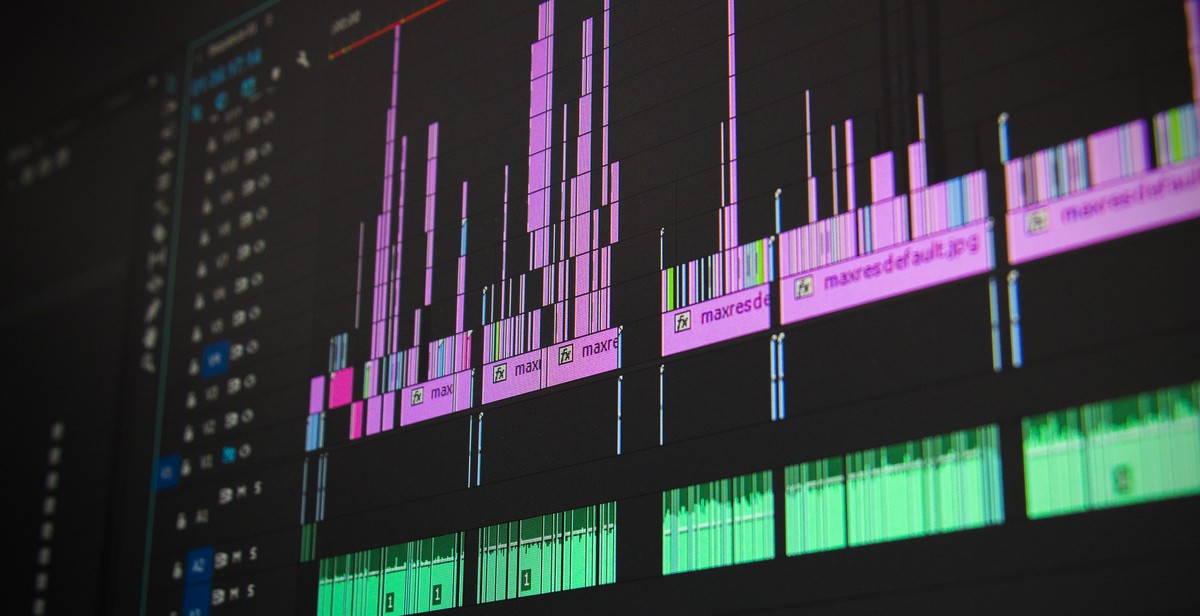The Influence of Music on Mood and Mental State
Music is an integral part of our lives. It has the power to uplift our mood, soothe our soul, and even transport us to another world. From ancient times, music has been used for various purposes, including religious ceremonies, celebrations, and entertainment. However, in recent years, the therapeutic benefits of music have gained more attention, especially in the fields of psychology and mental health.
The Science behind Music and Mood
Studies have shown that music can have a profound effect on our emotional and mental states. Listening to music releases dopamine, a neurotransmitter associated with pleasure and reward, in the brain. It also triggers the release of oxytocin, a hormone that promotes feelings of trust and bonding. Moreover, music has been found to reduce levels of cortisol, the stress hormone, in the body.
The Therapeutic Potential of Music
Given the powerful impact that music has on our mood and mental state, it is not surprising that it has been used as a therapeutic tool for centuries. Music therapy is a form of treatment that uses music to address physical, emotional, cognitive, and social needs. It has been found to be effective in treating a range of conditions, including depression, anxiety, and post-traumatic stress disorder (PTSD).
The Role of Music in Self-care
Aside from its therapeutic benefits, music can also be used as a tool for self-care. Listening to music can be a form of relaxation and stress relief, helping us to unwind and recharge. It can also be a source of inspiration and motivation, helping us to stay focused and productive.
In this article, we will explore the influence of music on mood and mental state in more detail, looking at the science behind it, its therapeutic potential, and its role in self-care.

The Science Behind Music and Mood
Have you ever wondered why music has such a powerful effect on our mood and mental state? The answer lies in the way music interacts with the brain.
How Music Affects the Brain
Research has shown that listening to music activates several areas of the brain, including the auditory cortex, which processes sound, and the limbic system, which is involved in emotion and memory.
Studies have also found that listening to music can increase the production of dopamine, a neurotransmitter that is associated with pleasure and reward. This is why listening to music can feel so enjoyable and can even lead to feelings of euphoria.
Furthermore, music has been shown to reduce the levels of cortisol, a hormone that is associated with stress. This is why many people use music as a way to relax and de-stress.
The Role of Neurotransmitters in Music and Mood
Neurotransmitters are chemicals in the brain that transmit signals between neurons. There are several neurotransmitters that are involved in the way music affects our mood, including:
- Dopamine: As mentioned earlier, dopamine is associated with pleasure and reward. When we listen to music that we enjoy, dopamine is released, which can lead to feelings of happiness and enjoyment.
- Serotonin: Serotonin is a neurotransmitter that is associated with mood regulation. Listening to music can increase the production of serotonin, which can lead to feelings of happiness and well-being.
- Endorphins: Endorphins are neurotransmitters that are associated with pain relief and feelings of pleasure. Listening to music can increase the production of endorphins, which can lead to feelings of euphoria and happiness.
Overall, the science behind music and mood is complex and involves several areas of the brain and neurotransmitters. However, it is clear that listening to music can have a powerful effect on our emotions and mental state.

Music as a Therapeutic Tool
Music therapy has been used for centuries to help individuals with various mental health conditions. It has been found to be an effective treatment for depression, anxiety, and post-traumatic stress disorder (PTSD).
Music Therapy for Depression
Depression is a mental health condition that affects millions of people worldwide. It can be debilitating and can have a significant impact on an individual’s quality of life. Music therapy has been found to be an effective treatment for depression.
A study conducted by the Journal of Affective Disorders found that music therapy was effective in reducing symptoms of depression. The study found that individuals who received music therapy had a significant reduction in symptoms compared to those who did not receive music therapy.
Music Therapy for Anxiety
Anxiety is another mental health condition that can be challenging to manage. It can cause feelings of fear, worry, and unease. Music therapy has been found to be an effective treatment for anxiety.
A study published in the Journal of Music Therapy found that music therapy was effective in reducing symptoms of anxiety. The study found that individuals who received music therapy had a significant reduction in anxiety symptoms compared to those who did not receive music therapy.
Music Therapy for PTSD
Post-traumatic stress disorder (PTSD) is a mental health condition that can develop after experiencing or witnessing a traumatic event. It can cause symptoms such as flashbacks, nightmares, and severe anxiety. Music therapy has been found to be an effective treatment for PTSD.
A study published in the Journal of Traumatic Stress found that music therapy was effective in reducing symptoms of PTSD. The study found that individuals who received music therapy had a significant reduction in PTSD symptoms compared to those who did not receive music therapy.
| Mental Health Condition | Effectiveness of Music Therapy |
|---|---|
| Depression | Effective in reducing symptoms |
| Anxiety | Effective in reducing symptoms |
| PTSD | Effective in reducing symptoms |
Overall, music therapy has been found to be an effective treatment for various mental health conditions, including depression, anxiety, and PTSD. It can be used in combination with other treatments or as a standalone treatment. If you are struggling with a mental health condition, consider incorporating music therapy into your treatment plan.

Using Music to Boost Productivity
Music has been proven to have a significant impact on our mood and mental state. It can help us focus, motivate us, and boost our creativity. Here’s how:
Music and Focus
When you’re struggling to concentrate on a task, playing music can help you get in the zone. Studies have shown that listening to music can improve cognitive performance and increase focus. However, it’s important to choose the right type of music. Instrumental music, such as classical or jazz, is often recommended as it has a calming effect and can help reduce distractions. On the other hand, if you prefer to listen to lyrics, choose songs that you’re familiar with so that you’re not distracted by trying to follow the words.
Music and Motivation
Music has the power to motivate us and get us moving. Listening to upbeat music can increase our heart rate and release feel-good chemicals in our brain, such as dopamine. This can help us push through tough workouts or give us the energy we need to tackle a difficult project. When choosing music for motivation, look for songs with a fast tempo and a positive message.
Music and Creativity
Music can also inspire creativity. Listening to music can activate the same parts of the brain that are used for creative thinking. It can help us come up with new ideas and think outside of the box. When choosing music for creativity, consider instrumental music that’s free from lyrics so that you’re not distracted by the words. Ambient music or nature sounds can also be a good choice as they can help create a relaxing atmosphere.
| Music and Productivity | Key Takeaways |
|---|---|
| Music can help us focus on tasks. | Choose instrumental music or familiar songs. |
| Music can motivate us to get moving. | Choose upbeat songs with a positive message. |
| Music can inspire creativity. | Choose instrumental or ambient music. |

The Impact of Music on Memory
Music has been known to have a profound impact on memory. It is a powerful tool that can be used to enhance learning, memory retention, and even help with Alzheimer’s disease.
Music and Learning
Studies have shown that music can help improve learning. It has been found that listening to music while studying can help increase focus and concentration levels. This is because music can help create a more positive and enjoyable learning environment, which can lead to better information retention.
Music and Memory Retention
Music can also help with memory retention. It has been found that music can help activate certain areas of the brain that are responsible for memory. This can lead to improved memory recall and retention, especially in older adults.
One study found that participants who listened to music while learning and then listened to the same music while trying to recall the information had significantly better memory recall than those who did not listen to music at all.
Music and Alzheimer’s Disease
Music can also be beneficial for those with Alzheimer’s disease. It has been found that music can help stimulate memories and emotions in individuals with Alzheimer’s, even in the later stages of the disease.
A study conducted by the University of Utah found that Alzheimer’s patients who listened to music from their past showed significant improvement in mood, cognitive function, and communication skills.
| Benefits of Music on Memory |
|---|
| Enhanced learning |
| Better memory retention |
| Improved memory recall |
| Stimulates memories and emotions in Alzheimer’s patients |
| Improves mood, cognitive function, and communication skills in Alzheimer’s patients |
Overall, the impact of music on memory is undeniable. Whether you are looking to enhance your learning or memory retention, or you are looking for ways to help those with Alzheimer’s disease, music can be a powerful tool to achieve these goals.

Conclusion
Music has a powerful influence on our mood and mental state. It can affect our emotions, thoughts, and behavior in a variety of ways. Whether we listen to music for relaxation, motivation, or inspiration, it can have a profound impact on our well-being.
Research has shown that music therapy can be an effective treatment for a range of mental health conditions, including anxiety, depression, and PTSD. It can also help to reduce stress, lower blood pressure, and improve cognitive function.
There are many different types of music that can have different effects on our mood and mental state. For example, classical music is often associated with relaxation and can help to reduce stress, while upbeat pop music can be energizing and motivating.
Ultimately, the influence of music on our mood and mental state is highly personal and subjective. What works for one person may not work for another. However, by understanding the different ways in which music can affect us, we can use it to our advantage and improve our overall well-being.
Key takeaways:
- Music can have a powerful influence on our mood and mental state.
- Music therapy can be an effective treatment for a range of mental health conditions.
- Different types of music can have different effects on our mood and mental state.
- By understanding the ways in which music affects us, we can use it to improve our well-being.
| Keywords: | Music, Mood, Mental State, Music Therapy, Well-being. |
